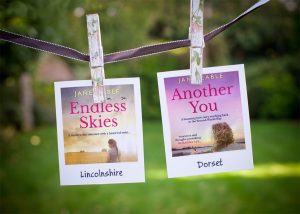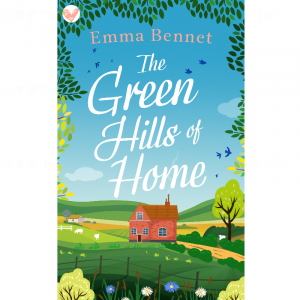
It’s been well over a year now since Covid-19 first made an appearance, and since then people’s lives have been very different indeed.
I was interested to find out how the pandemic has affected writers in particular, both in how they go about their writing and taking into account how the publishing process may have changed.
My husband and I already worked from home and so our day to day work lives haven’t really been very different, but I’m aware that an awful lot of writers have had to change their writing habits, either because they are now needing to teach children who are usually at school, or because their house is now too noisy or their previous writing ‘spot’ has been taken over by a spouse because it’s the ideal place to make Zoom calls and it’s close to a kettle!
Corners in bedrooms have been turned into home offices, spare rooms and attics have been tidied up, given a lick of paint, and brought into play. I know a couple of people who’ve turned camper vans into writing sheds. I’ve even heard of writers renting hotel rooms to work in during the first lockdown, but that’s financially not possible for most authors!
What I found when I spoke to writers on Facebook was that the biggest struggle was staying motivated during these strange times. They may have plenty of time to write, even somewhere perfect to do so, but being able to is quite another thing! Sharon Booth said:

‘It’s been a case of having to get on with it by sheer will power. I’ve really struggled to write. Last year I only released two books – usually it’s three or, more often, four. I’ve had to resort to force. I got a planner, which includes a weekly to-do list. I write down what needs to be done for the month, the week and then each day. I set a target of 2,000 words per day and tick each block off my to-do list as I finish it. It’s satisfying to see all those ticks, and the sense of achievement keeps me going. I allow myself weekends off now and that’s helped a lot. I try to get all my writing done in the morning because my concentration’s much worse in the afternoons, so that’s a good time to make social media posts, update my website, admin etc.’
https://sharonboothwriter.com/
Some have tweaked their writing habits to help, like Jen Gilroy:
‘For the first time ever, I’m lighting a scented candle when I write. It’s a sensory way to delineate writing time and help me focus on getting words on the page no matter what else is going on around me. I’m also giving myself ‘permission’ to be flexible with my usual approach and write a very rough, occasionally non-linear, first draft. I’m a linear writer (and thinker) so the latter is hard but it’s also helping me keep my word count going at present.’
https://www.amazon.co.uk/Jen-Gilroy/e/B01NCI49QS?ref=sr_ntt_srch_lnk_1&qid=1611237351&sr=8-1
Others said that writing has been their lifetime, a bit of normal when everything else seems turned upside down. Judith Barrow said:
‘I escape into my writing and it’s been my way of not having to think about why we’re in lockdown; a way of escaping the real world for a time.’
and Jane Cable wrote:

‘Having a deadline helps and I have been busy writing my second novel as Eva Glyn for One More Chapter. Overall though, writing has been something of a saviour as it’s a joy to escape into a different world.’
http://www.janecable.com
http://getbook.at/AnotherYou
http://getbook.at/EndlessSkies

David Thorpe had some very interesting points to make about how the world of publishing itself has changed in the last year, and how it’s affected him:
‘Because libraries have not been open, like many others I have suffered a 90% drop in payments from PLS send ALCS. Many of my books are academic and universities’ libraries have been closed. The support of a grant from the Society of Authors pandemic fund was invaluable. Editors and agents have been taking much much longer to look at manuscripts. I was teaching a creative writing class in the real world before the first lockdown and this had to stop. We went online for a few weeks, but then the group has petered out – there’s nothing like meeting people in real life. However I have got a few students on an online writing course. A lot more people are writing books during the time that the lockdown has given them. To begin with in the first lockdown there was support for running online workshops on well-being and writing, and I did run one for Literature Wales and one for another community organisation but in the subsequent lockdown these haven’t happened. I’m glad now that I haven’t had a book published during the pandemic as those writers who have have been unable to have any physical launches and sales have suffered. I do understand that people are reading more books according to figures from Nielsens, but I’m not sure that these translate into sales for most authors, it’s mostly the A list writers who seem to be benefiting –and authors of cookery books! What publishers are looking for has also changed… More escapism and more uplifting, feelgood narratives. Fortunately I also write journalism and there has been no reduction in the need for this.’
It seems the key is to roll with the punches somewhat! Writers have gotta do what they’ve gotta do to get those words on the page. They may have to be more patient when waiting to hear back from publishers and agents, and accept that they may either have to hold on to submit a manuscript which might not fit with what’s been taken on right now, self-publish, or change what they are writing, at least temporarily.
Post a Reply to Angela Jane Clare Petch cancel reply
You must be logged in to post a comment.



Angela Jane Clare Petch3 years ago
Interesting article. There is nothing like a book contract, however, to make you get on with it.
Emma3 years ago
Absolutely! Sometimes it’s now such a matter of ‘How can I do it?’ but ‘I have to do it!’ x